
At ATMRD 2023, Lori DePorter, global ambassador for the PMD alliance, talked from the patient experience about the need for improved communication between care teams and support groups in Parkinson disease. [WATCH TIME: 3 minutes]

At ATMRD 2023, Lori DePorter, global ambassador for the PMD alliance, talked from the patient experience about the need for improved communication between care teams and support groups in Parkinson disease. [WATCH TIME: 3 minutes]

Episode 35 of the AUPN Leadership Minute features Tracey A. Milligan, MD, of New York Medical College; and Carl Gold, MD, MS, of Stanford University. [WATCH TIME: 5 minutes]

Following the positive results, uniQure expects to initiate a third cohort in the ongoing trial to further investigate both low and high doses of AMT-130 in combination with perioperative immunosuppression.
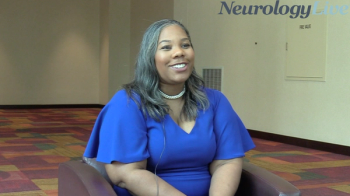
The sleep epidemiologist and assistant professor at the Rollins School of Public Health at Emory University discussed the multi-level effort needed to improve sleep issues seen in individuals most impacted by social determinants of health. [WATCH TIME: 3 minutes]

Here's some of what is coming soon to NeurologyLive® this week.

In a phase 3 study, a subgroup of patients with spinocerebellar ataxia treated with troriluzole demonstrated a numerical treatment benefit relative to placebo on the primary end point of change in f-SARA scores.
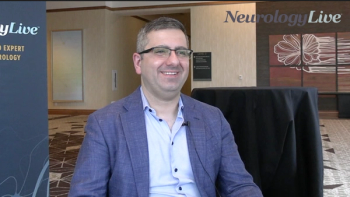
The assistant professor of neurology at Harvard Medical School talked about the prevalence of tension-type headache and how recent advances shed light on its pathophysiological mechanisms, leading to potential new treatments for the condition. [WATCH TIME: 5 minutes]

Test your neurology knowledge with NeurologyLive®'s weekly quiz series, featuring questions on a variety of clinical and historical neurology topics. This week's topic is neuromuscular disorders.

In a trial of 250 adults with sporadic ALS, pegcetacoplan failed to meet its primary end point of change in Combined Assessment of Function and Survival rank scores relative to placebo after a 52-week stretch.

In patients with early Parkinson disease, results showed that UB-312 was generally safe and well-tolerated, which supports the advancement of the vaccine into further clinical development.
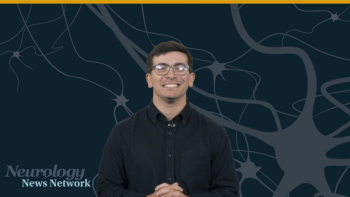
Neurology News Network for the week ending June 24, 2023. [WATCH TIME: 3 minutes]

Take 5 minutes to catch up on NeurologyLive®'s highlights from the week ending June 23, 2023.
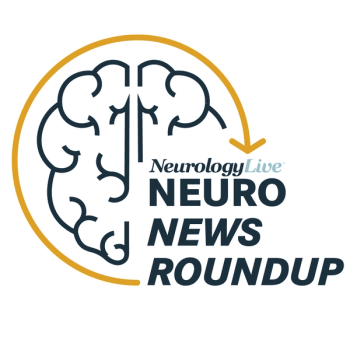
In honor of Dravet Syndrome Awareness Day, held June 23, 2023, get caught up on some of the latest news in Dravet syndrome as the NeurologyLive® team shares some of our data updates.
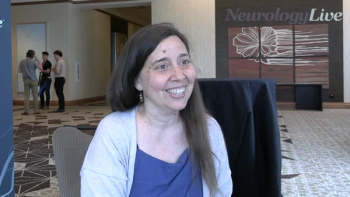
The research project manager of the headache program at the Children's Hospital of Philadelphia discussed data that suggest that an unhealthy and imbalanced microbiome may exacerbate the frequency, severity, and duration of migraines. [WATCH TIME: 4 minutes]

B U. K. Li, MD, emeritus professor of pediatrics and gastroenterology at the Medical College of Wisconsin, highlights the significant overlap between cyclic vomiting syndrome, abdominal migraine, and migraine headaches.

Mind Moments®, a podcast from NeurologyLive®, brings you an exclusive interview with Natalie Goedeker, CPNP. [LISTEN TIME: 12 minutes]

Compared with placebo, inebilizumab-treated participants showed attenuated biomarker elevation during attacks and reduced biomarker levels over time in the absence of adjudicated attacks.

Marketed as Elevidys, the gene therapy is approved for ambulatory pediatric patients aged 4 to 5 with Duchenne based on expression of micro-dystrophin.

Over an 8-week period, patients with migraine and major depressive disorder who were treated with fremanezumab showed significant reductions in HAMD-17 and PHQ-9 scores.
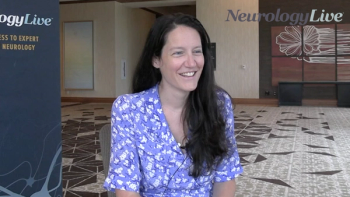
The headache specialist at Hartford Healthcare Headache Center talked about her debate at AHS 2023 on why migraine is not a risk factor for dementia. [WATCH TIME: 5 minutes]
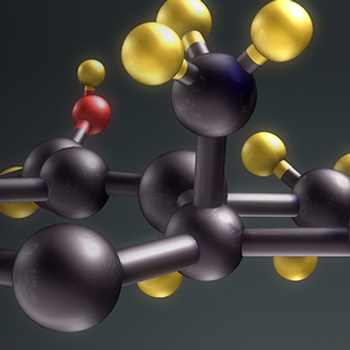
Garth T. Whiteside, PhD, head of preclinical development at Imbrium Therapeutics, discussed a phase 2 clinical study that explored the use of sunobinop in patients with insomnia during recovery from alcohol use disorder.

CHALLENGE-MIG, a 3-month study, is the first trial to compare the efficacy of 2 previously approved calcitonin gene-related peptide antagonists in the treatment of migraine.
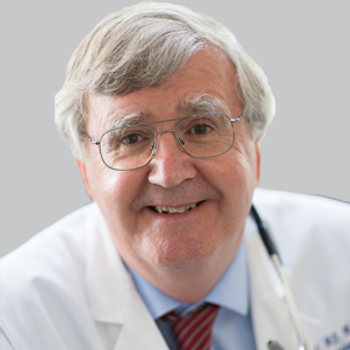
Biomarker data at 49 weeks continued to demonstrate that DNL310 enabled rapid and sustained normalization of CSF heparan sulfate to normal healthy levels and improvement in lysosomal function biomarkers.

Over a 12-week period, PTC518 showed a safe and tolerable profile, with significant reductions in mutant huntingtin protein and an overall trend towards lowering of neurofilament light levels.

Following the initiation or switch to a new migraine preventive medication, patients taking galcanezumab showed numerically greater 3-month improvements for most measures of health-related quality of life and disability.
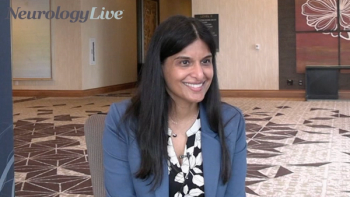
The associate professor of neurology at Mayo Clinic discussed the developing field of migraine management during pregnancy and the importance of raising awareness of treatment options during the gestation period. [WATCH TIME: 4 minutes]

At the 2023 AHS Annual Meeting, the chief of headache at UT Austin Dell Children’s Hospital discussed her presentation on a new educational intervention to improve knowledge of pediatric headache.

The basis for the FDA’s decision came from the phase 3 ADAPT-SC study, in which subcutaneous efgartigimod showed a slightly better ability to reduce immunoglobulin compared with its previously approved intravenous formulation.

The combination of both REN and gepants for acute migraine treatment may have an increased efficacy compared with REN alone, an expected result based on the different actions of the treatments.

In one of the first phase 3 trials of primary mitochondrial myopathy, elamipretide failed to meet its primary end points; however, a subgroup of patients with nuclear DNA defects saw improvement in 6-minute walk test, raising further questions.